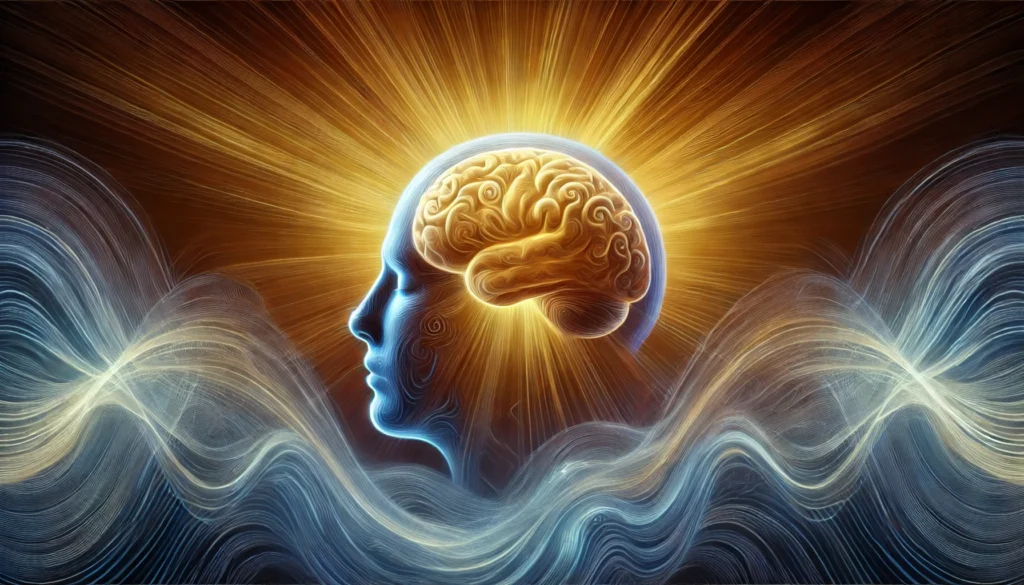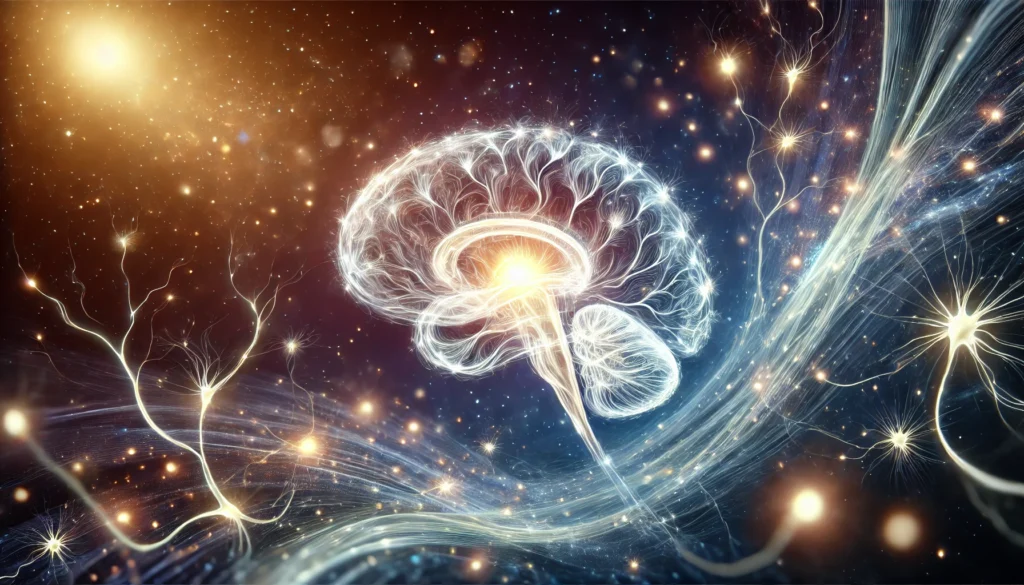Understanding Brain Trauma and Its Impact on Memory
Brain trauma, whether caused by a fall, an accident, or another form of injury, can profoundly impact cognitive functions, including memory recall and retention. When the brain suffers trauma, its neural pathways—critical networks responsible for processing and storing information—can become disrupted, leading to difficulties in memory retrieval, concentration, and overall cognitive function. The process of healing brain trauma involves not only physical recovery but also targeted strategies to rehabilitate and strengthen neural pathways. In the case of a severe injury, such as a brain bleed recovery after a fall, the rehabilitation process is multi-faceted, requiring a combination of medical treatment, cognitive exercises, and lifestyle modifications to restore optimal brain function.
You may also like: How to Retrain Your Brain: Harnessing Neuroplasticity to Overcome Anxiety and Strengthen Neural Pathways
Recovering from brain trauma follows a series of stages, each presenting unique challenges and opportunities for healing. The brain bleed recovery stages, for instance, often involve initial stabilization, followed by gradual neural regeneration, cognitive therapy, and long-term maintenance of brain health. Understanding these stages and implementing evidence-based techniques can significantly improve memory recall and cognitive performance, ensuring that the individual regains their mental sharpness and quality of life.
The Science Behind Neural Pathway Strengthening
Neural pathways are the brain’s communication highways, transmitting signals that govern thoughts, actions, and memories. When these pathways are damaged due to trauma, they require targeted rehabilitation to restore their functionality. The brain’s neuroplasticity—the ability to reorganize itself by forming new neural connections—plays a crucial role in this process. By engaging in strategic cognitive exercises and therapies, individuals can stimulate neuroplasticity, enabling the brain to adapt and compensate for damaged areas.
One of the key mechanisms behind neural recovery is synaptic plasticity, which allows neurons to strengthen existing connections and establish new ones. Research has shown that engaging in mentally stimulating activities, such as problem-solving exercises, memory games, and learning new skills, can enhance synaptic plasticity, promoting faster recovery. Additionally, interventions such as transcranial magnetic stimulation (TMS) and neurofeedback therapy have shown promise in enhancing cognitive function post-injury, offering advanced methods for facilitating neural repair.
Cognitive Rehabilitation Techniques for Memory Enhancement
Memory recovery following brain trauma is a gradual process that requires structured cognitive rehabilitation techniques. These techniques are designed to improve cognitive flexibility, information processing speed, and recall efficiency. One effective approach is the use of mnemonic devices, which help individuals associate new information with existing knowledge, making it easier to retain and retrieve memories.
Another critical technique involves spaced repetition, a learning method that reinforces information over progressively longer intervals to enhance long-term retention. Studies indicate that individuals recovering from brain trauma benefit significantly from structured repetition exercises, which strengthen memory encoding and retrieval processes. Additionally, mindfulness meditation has been found to improve working memory by reducing stress and enhancing attentional control, contributing to overall cognitive resilience.

The Role of Nutrition in Brain Recovery
Optimal nutrition plays a fundamental role in the healing process of brain trauma, supporting neural regeneration and cognitive function. Certain nutrients are particularly beneficial for brain recovery, including omega-3 fatty acids, which promote synaptic plasticity and reduce neuroinflammation. Foods rich in antioxidants, such as berries and leafy greens, help combat oxidative stress, protecting neurons from further damage.
Protein-rich foods provide essential amino acids necessary for neurotransmitter production, supporting cognitive function and emotional stability. Additionally, adequate hydration is crucial for maintaining optimal brain function, as dehydration can impair cognitive performance and slow down recovery. Supplementation with vitamins such as B-complex, vitamin D, and magnesium can further enhance neural repair and improve overall cognitive health.
Physical Exercise and Its Impact on Neural Pathways
Engaging in regular physical exercise is another powerful strategy for strengthening neural pathways and promoting brain healing. Aerobic exercises, such as walking, swimming, and cycling, increase blood flow to the brain, delivering oxygen and nutrients essential for neural regeneration. Research suggests that physical activity stimulates the release of brain-derived neurotrophic factor (BDNF), a protein that supports neuroplasticity and enhances cognitive function.
Strength training and coordination exercises, such as yoga and tai chi, have also been found to improve balance, spatial awareness, and overall cognitive health. These activities encourage the integration of multiple brain regions, reinforcing neural connectivity and supporting memory recovery. Additionally, exercise has been shown to reduce stress and anxiety, factors that can impede cognitive rehabilitation and hinder the healing process.
Sleep and Its Crucial Role in Brain Healing
Quality sleep is a cornerstone of brain trauma recovery, allowing the brain to repair and consolidate memories. During deep sleep stages, the brain undergoes synaptic pruning, a process that strengthens essential neural connections while eliminating weaker ones. Sleep deprivation, on the other hand, can impair memory consolidation and slow down neural regeneration, making it essential for individuals recovering from brain trauma to prioritize restorative sleep.
Establishing a consistent sleep schedule, creating a conducive sleep environment, and minimizing exposure to screens before bedtime can significantly enhance sleep quality. Additionally, relaxation techniques such as progressive muscle relaxation and guided imagery can promote deep sleep, further supporting cognitive recovery and memory enhancement.
Emotional and Psychological Support in Cognitive Recovery
Healing brain trauma is not solely a physiological process—it also involves addressing the emotional and psychological aspects of recovery. Many individuals who experience brain trauma face challenges such as anxiety, depression, and frustration due to cognitive impairments. Providing psychological support through counseling, cognitive behavioral therapy (CBT), and mindfulness practices can help individuals cope with these challenges and maintain motivation throughout their recovery journey.
Social support is another crucial factor in brain healing, as positive social interactions have been shown to stimulate neural activity and enhance cognitive function. Engaging with supportive friends, family members, and support groups fosters a sense of belonging and emotional resilience, facilitating a more effective recovery process.
Long-Term Strategies for Maintaining Cognitive Health
Even after significant recovery, maintaining cognitive health requires ongoing effort and lifestyle modifications. Engaging in lifelong learning, staying mentally active, and challenging the brain with new experiences help sustain neural plasticity and prevent cognitive decline. Incorporating brain-training activities, such as puzzles, language learning, and musical training, further strengthens memory and cognitive agility.
Additionally, maintaining a healthy lifestyle that includes balanced nutrition, regular exercise, adequate sleep, and stress management ensures long-term brain health. Periodic cognitive assessments and consultations with healthcare professionals can help individuals monitor their cognitive function and make necessary adjustments to their rehabilitation strategies.

Frequently Asked Questions (FAQ) on Healing Brain Trauma and Memory Recovery
1. What are the most critical early interventions for brain bleed recovery after a fall?
Early interventions are crucial for minimizing long-term cognitive deficits and enhancing neural recovery. The first step is immediate medical evaluation to determine the severity of the brain bleed and prevent complications such as swelling or increased intracranial pressure. In addition to medical care, rest and reduced stimulation in the initial days help the brain stabilize. During the early brain bleed recovery stages, medical professionals may recommend neuroimaging to track progress and determine the need for rehabilitation therapies. Cognitive rest, combined with monitored reintroduction of mental activity, can significantly improve recovery outcomes by reducing overstimulation and allowing neural repair mechanisms to function optimally.
2. How does emotional resilience impact healing brain trauma?
Emotional resilience plays a significant role in recovery by reducing stress-induced cognitive decline and enhancing motivation for rehabilitation. Individuals with strong emotional support systems tend to recover more effectively, as social interactions stimulate neural activity and cognitive engagement. Psychological therapies, including cognitive-behavioral therapy (CBT) and guided visualization techniques, have been shown to accelerate recovery by helping patients cope with frustration and setbacks. Chronic stress impairs neuroplasticity, making it essential to practice mindfulness and relaxation techniques alongside cognitive therapies. By fostering emotional resilience, patients improve their overall cognitive rehabilitation and experience a more stable recovery journey.
3. What are some overlooked factors that influence brain bleed recovery stages?
Several lesser-known factors can significantly affect brain bleed recovery after a fall, including environmental stimuli, sleep quality, and gut health. Bright lights, loud noises, and excessive screen exposure can overstimulate the brain, delaying recovery. Poor sleep disrupts memory consolidation and slows neural repair, making it crucial to establish a consistent sleep schedule. The gut-brain connection also plays a role, as a balanced diet rich in probiotics and fiber can enhance cognitive function by reducing inflammation. Integrating lifestyle adjustments alongside standard rehabilitation treatments can yield more comprehensive and effective recovery outcomes.
4. How do financial limitations impact the healing process?
Financial constraints can present significant challenges for individuals undergoing rehabilitation for healing brain trauma, particularly when accessing specialized therapies and treatments. Many cognitive therapy programs, neurofeedback sessions, and advanced neurological rehabilitation tools are not covered by standard insurance plans. However, alternative resources such as community-based rehabilitation programs, online cognitive training platforms, and nonprofit support groups can provide effective solutions for those on a budget. Additionally, exploring disability benefits, crowdfunding opportunities, and patient advocacy programs can help alleviate financial burdens. Proactive financial planning ensures sustained access to necessary treatments and long-term cognitive support.
5. Can alternative therapies aid in memory recovery during healing brain trauma?
Alternative therapies can complement traditional medical interventions and enhance cognitive rehabilitation. Acupuncture has been studied for its potential to improve blood flow and reduce inflammation in the brain, promoting faster neural repair. Music therapy has shown promising results in memory recovery, as rhythmic patterns help stimulate neural pathways associated with recall and recognition. Herbal supplements such as ginkgo biloba and lion’s mane mushroom may support neuroplasticity, though they should be used under medical supervision. Light therapy, particularly exposure to natural sunlight, can regulate circadian rhythms and improve sleep, further aiding memory recovery. While alternative therapies should not replace evidence-based treatments, they can be valuable additions to a holistic recovery plan.
6. What role does technology play in tracking brain bleed recovery stages?
Modern technology offers valuable tools for monitoring and enhancing recovery from brain injuries. Mobile applications designed for cognitive training provide interactive exercises that help strengthen memory, attention, and problem-solving skills. Wearable devices that track brain activity, sleep patterns, and heart rate variability can provide insights into neurological progress. Virtual reality (VR)-based rehabilitation programs have shown promising results in retraining motor and cognitive functions by immersing patients in engaging, controlled environments. Telemedicine allows individuals to consult with neurologists and rehabilitation specialists remotely, ensuring continuity of care. These technological advancements make it easier to track recovery milestones and tailor treatment strategies accordingly.
7. How can caregivers support individuals undergoing brain bleed recovery after a fall?
Caregivers play a crucial role in assisting with the recovery process by providing emotional support, facilitating cognitive exercises, and ensuring adherence to medical recommendations. Encouraging social interaction and conversation stimulates cognitive function, reinforcing memory retention and recall. Establishing structured daily routines minimizes confusion and enhances cognitive rehabilitation by promoting predictable engagement. Caregivers should also educate themselves on the brain bleed recovery stages to better understand challenges and adjust their support strategies accordingly. Equipping caregivers with knowledge about neuroplasticity and effective rehabilitation techniques ensures they provide optimal assistance while also maintaining their own well-being.
8. What is the long-term outlook for individuals healing brain trauma?
The long-term outlook varies depending on the severity of the initial injury, the effectiveness of rehabilitation, and lifestyle choices made post-recovery. Many individuals regain significant cognitive function through consistent mental engagement, physical exercise, and proper nutrition. However, some may experience lingering cognitive challenges such as memory lapses, difficulty concentrating, or slower information processing speeds. Implementing lifelong cognitive training, stress management techniques, and regular neurological assessments helps mitigate long-term deficits. By prioritizing brain health and adopting preventative strategies, individuals can continue to improve cognitive function well beyond the initial recovery phase.
9. How does hydration affect cognitive recovery after a brain injury?
Proper hydration is essential for cognitive recovery, as even mild dehydration can impair concentration, memory, and overall brain function. Water facilitates the transport of oxygen and nutrients to the brain, promoting cellular repair and reducing inflammation. Dehydration can exacerbate symptoms such as brain fog, fatigue, and dizziness, hindering progress in rehabilitation. Electrolyte balance also plays a crucial role, as minerals like sodium, potassium, and magnesium contribute to neural communication and cognitive efficiency. Maintaining adequate hydration levels supports sustained cognitive performance and accelerates the healing process.
10. Can lifestyle changes prevent future cognitive decline after recovering from brain trauma?
Yes, adopting a brain-healthy lifestyle can significantly reduce the risk of future cognitive decline and enhance overall neurological resilience. Regular physical exercise stimulates neuroplasticity by increasing blood flow and promoting the release of brain-derived neurotrophic factor (BDNF), a protein essential for neural repair. A diet rich in antioxidants, healthy fats, and lean proteins supports brain function and reduces oxidative stress. Engaging in lifelong learning activities such as reading, puzzles, and skill-building exercises helps maintain mental agility. Managing stress through mindfulness and relaxation techniques further protects cognitive health, ensuring that individuals continue to thrive long after their initial recovery.

Conclusion: A Holistic Approach to Brain Trauma Recovery
Recovering from brain trauma requires a comprehensive and multifaceted approach that addresses neural pathway strengthening, cognitive rehabilitation, nutrition, physical activity, sleep, and emotional well-being. The healing process unfolds through various brain bleed recovery stages, necessitating patience, perseverance, and a commitment to cognitive health. By implementing evidence-based strategies and fostering a supportive environment, individuals can enhance their memory recovery, regain cognitive function, and achieve long-term brain resilience. Emphasizing holistic healing ensures that individuals recovering from brain trauma can reclaim their mental clarity, cognitive sharpness, and overall well-being, paving the way for a fulfilling and enriched life.
Further Reading:
Management and Treatment of Traumatic Brain Injuries
Important Note: The information contained in this article is for general informational purposes only, and should not be construed as health or medical advice, nor is it intended to diagnose, prevent, treat, or cure any disease or health condition. Before embarking on any diet, fitness regimen, or program of nutritional supplementation, it is advisable to consult your healthcare professional in order to determine its safety and probable efficacy in terms of your individual state of health.
Regarding Nutritional Supplements Or Other Non-Prescription Health Products: If any nutritional supplements or other non-prescription health products are mentioned in the foregoing article, any claims or statements made about them have not been evaluated by the U.S. Food and Drug Administration, and such nutritional supplements or other health products are not intended to diagnose, treat, cure, or prevent any disease.


